Portishead
Portishead是英国西南部的一个不起眼的港口,Portishead乐队的灵魂人物Geoff Barrow在那里度过了他的童年.在组建Portishead之前,Geoff Barrow曾在一些小的音乐制作室工作过,曾和Massive Attack合作过.乐队组建之后,先为一部名为'to kill a deadman'的影片制作了电影音乐(同时他们也参加了该片的演出)后加入GO! Discs公司.94年乐队出版了第一张专辑'Dummy',虽然乐队不爱接受采访的习惯使他们无法获得象Oasis那样的商业成就,但专辑却引起了乐评的广泛关注,被许多音乐刊物评为当年最佳专辑,与Massive Attack,Tricky并称为'Trip_pop三巨头'(真是个无聊的名字).这之后,Geoff Barrow这位完美主义者差点因无法获得新的音乐灵感而解散乐队.3年之后的97年,乐队的第二张专辑 'Portishead'出版。组建时间: 1991年国籍:英国专辑:Pnyc、Portishead、Dummyby Stephen Thomas ErlewinePortishead may not have invented trip-hop, but they were among the first to popularize it, particularly in America. Taking their cue from the slow, elastic beats that dominated Massive Attacks Blue Lines and adding elements of cool jazz, acid house, and soundtrack music, Portishead created an atmospheric, alluringly dark sound. The group wasnt as avant-garde as Tricky, nor as tied to dance traditions as Massive Attack; instead, it wrote evocative pseudo-cabaret pop songs that subverted their conventional structures with experimental productions and rhythms of trip-hop. As a result, Portishead appealed to a broad audience — not just electronic dance and alternative rock fans, but thirtysomethings who found techno, trip-hop, and dance as exotic as worldbeat. Before Portishead released their debut album, Dummy, in 1994, trip-hops broad appeal wasnt apparent, but the record became an unexpected success in Britain, topping most year-end critics polls and earning the prestigious Mercury Music Prize; in America, it also became an underground hit, selling over 150,000 copies before the group toured the U.S. Following the success of Dummy, legions of imitators appeared over the next two years, but Portishead remained quiet as they worked on their second album.Named after the West Coast shipping town where Geoff Barrow grew up, Portishead formed in Bristol, England, in 1991. Prior to the groups formation, Barrow had worked as a tape operator at the Coach House studio, where he met Massive Attack. Through that group, he began working with Tricky, producing the rappers track for the Sickle Cell charity album. Barrow also wrote songs for Neneh Cherrys Homebrew, though only Somedays appeared on the record. Around the time of Portisheads formation, he had begun to earn a reputation as a remix producer, working on tracks by Primal Scream, Paul Weller, Gabrielle, and Depeche Mode. Barrow met Beth Gibbons, who had been singing in pubs, in 1991 on a job scheme. Over the next few years, the pair began writing music, often with jazz guitarist Adrian Utley, who had previously played with both Big John Patton and the Jazz Messengers.Before releasing a recording, Portishead completed the short film To Kill a Dead Man, an homage to 60s spy movies. Barrow and Gibbons acted in the noirish film and provided the soundtrack, which earned the attention of Go! Records. By the fall, Portishead had signed with Go! and their debut album, Dummy, was released shortly afterward. Dummy was recorded with engineer Dave MacDonald, who played drums and drum machines, and guitarist Utley, who rounded out Portisheads lineup.Both Barrow and Gibbons were media-shy — the vocalist refused to participate in any interviews — which meant that the album received little attention outside of the weekly U.K. music press, which praised the album and its two singles, Numb and Sour Times, heavily. Soon, Go! and Portishead had developed a clever marketing strategy based on the groups atmospheric videos that began to attract attention. Melody Maker, Mixmag, and The Face named Dummy as 1994s album of the year, and early in 1995, Glory Box debuted at number 13 without any radio play. Around the same time, Sour Times entered regular rotation on MTV in America. Within a few weeks, Dummy and Sour Times were alternative rock hits in the U.S. Back in the U.K., the album had crossed over into the mainstream, becoming a fixture in the British Top 40. In July, the record won the Mercury Music Prize for Album of the Year, beating highly touted competition from Blur, Suede, Oasis, and Pulp. Following the Mercury Music Prize award, Barrow retreated to Coach House to begin work on Portisheads second album. The self-titled record finally appeared in September 1997. The live PNYC followed late the next year.

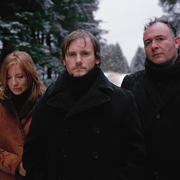
 Glory Box - Portishead
Glory Box - Portishead


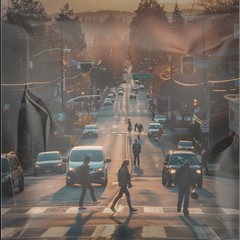




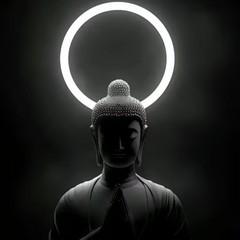
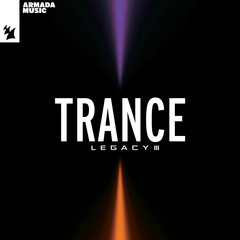
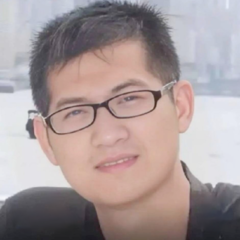

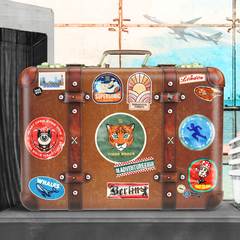

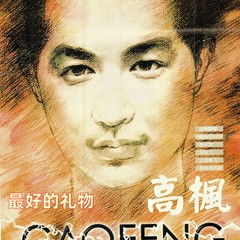













![[STATION] aespa《Dreams Come True》MV Teaser - aespa (에스파)](https://img2.kuwo.cn/wmvpic/324/79/54/2120387380.jpg?imageView2/1/w/195/h/130/format/jpg/q/60)





